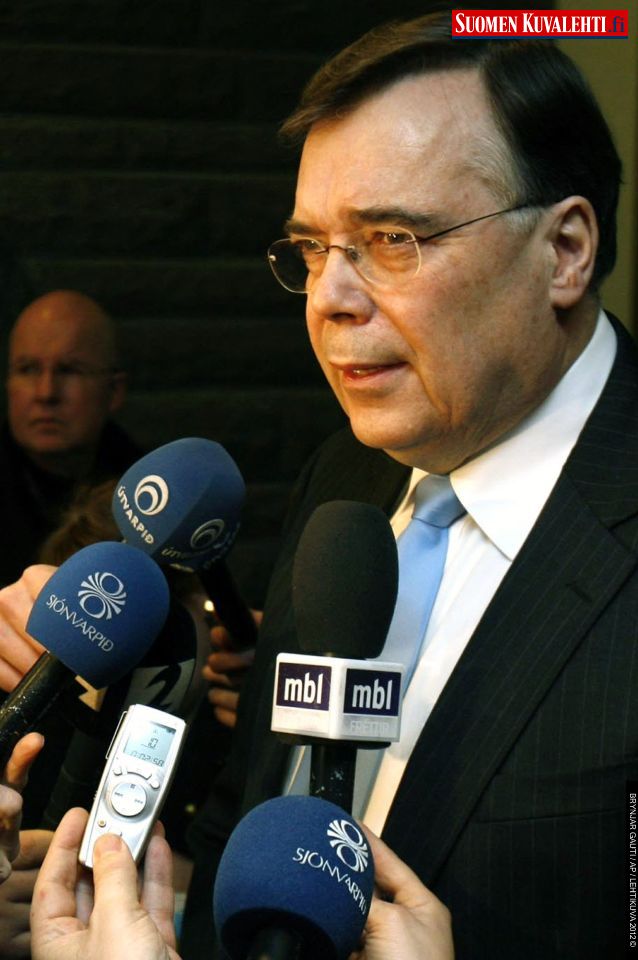Demetrios Chatzidakes-Zavorianos
Governments should fear their people as opposed to people fearing their governments.┬á This expression has become well known thanks to Alan MooreÔÇÖs infamous graphic novel and even more so thanks to the blockbuster film it inspired. I recalled that expression with the opportunity of the trial of IcelandÔÇÖs ex-prime minister over the crisis that beset his country in 2008.
From 2008 onwards, the small island nation became the centre of attention as its banks’ debts brought the country to its knees with more than 80 per cent of their debt belonging to the banking sector. The way in which the Icelandic people survived the matter politically in order to place their country on the recovery track is of great significance.
Under increasing popular discontent, for which the Icelanders tasted tear gas in the streets of Reykjavik for the first time since WWII, the government resigned at the beginning of 2009 and the new coalition governmental scheme proposed a bill to pay the UK and the Netherlands for the bailout of customers of the private Icelandic banks. Their view was to increase external pressures, which bordered  on extortion. President Ólafur Ragnar Grímsson vetoed the proposal on January 5 2010, and in a subsequent referendum held in March of the same year, the very first referendum ever held in Iceland, the people voted overwhelmingly against that option. A second, somehow more lenient debt payment proposal was vetoed yet again in February 2011 and a second referendum left no doubt as to what the people wanted.
In the meantime, as of November 2009, 25 Icelanders were chosen from their fellow citizens to rewrite the nationÔÇÖs constitution. The only thing these 25 had in common was the absolute absence of any ties between them and the political system as it was thus far. The articles of the new constitution were written one at a time and then published online. All people had the opportunity to view, comment and suggest on their new constitution in the making and each article was corrected and finalised after all propositions were taken into account.
Birgitta J├│nsd├│ttir, member of the Icelandic parliament, comments on the need the country had to change its political system as it did: “The ministers do not control anything; they are in truth controlled by the bureaucrats. Utilising the internet made direct democracy possible. In order for democracy to be real it has to be simple, otherwise bureaucracy makes it exceptionally difficult for people to participate let alone understand the processes. Thus we can understand that the failing of the system was not because of wrongful persons that had power.” She added, “the flaw was in the system itself and it was the system that had to be changed, not merely the persons in office, if things were to improve.”
The problem may be in the flaws of the system but at any case there are key persons responsible for key decisions taken in key moments. And this is where the legal persecution of all those responsible for what Iceland went through comes into play. The trial of Geir Haarde, IcelandÔÇÖs prime minister from 2006-2009, which began this, month definitely surpasses all other relevant ongoing legal cases in Iceland because it is unusual to see an ex-head of state accused of criminal responsibilities for his time in office anywhere in the world. He is not alone; several ministers and bankers face persecution while the then-secretary of the ministry of finance has already been convicted.
The persecution of the ex-PM was made possible thanks to a 1905 Icelandic law that allows for a special tribune to be set to examine cases related to ministers. This is the first time this special court is activated. Mr Haarde of course perceives this as an attack on him and his party. He adequately forgets that the Icelanders have also ousted the previous opposition parties, claiming that they had a share of the responsibility as well.
Whether politicians should be legally accountable for their decisions while in office is a matter for oneÔÇÖs own discretion. It is my personal opinion that Iceland is currently teaching the world what true democracy is and should be hailed as the new fatherland of (true) democracy for the third millennium.





Add Comment